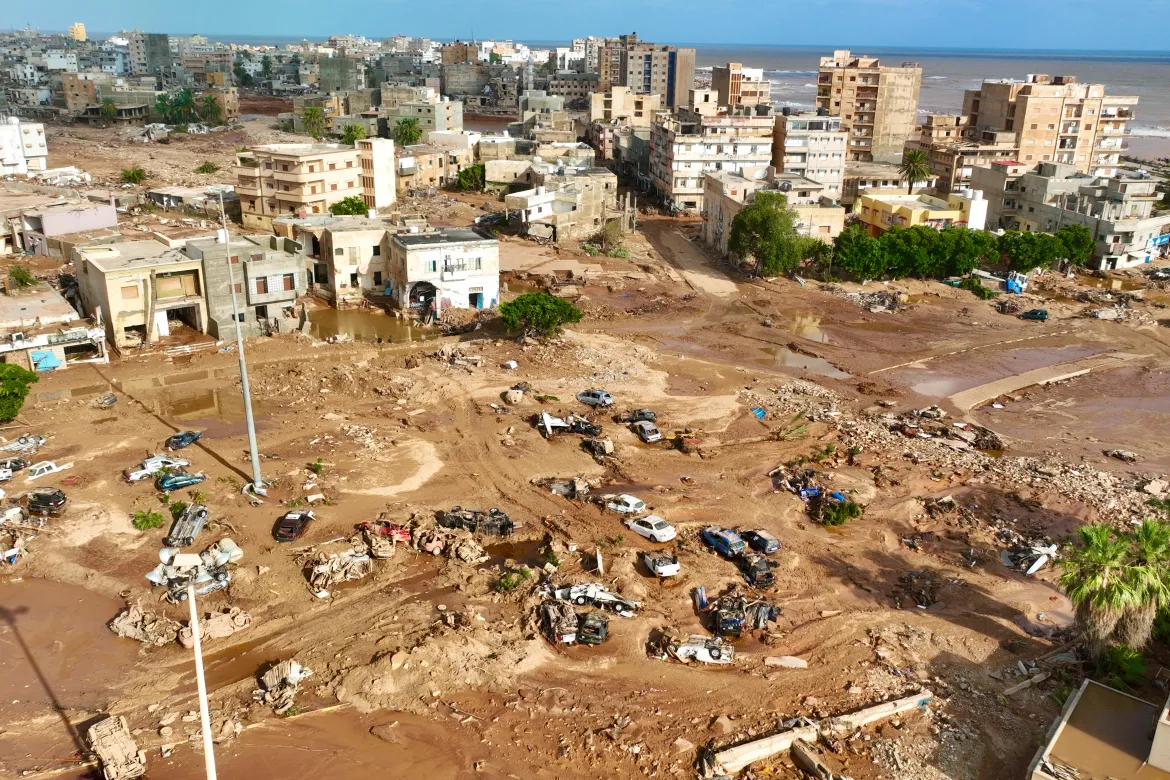Libyan city of Tarhuna grapples with devastating floods

Heavy rainfall has unleashed severe flooding in the Libyan city of Tarhuna, causing widespread disruption and significant damage across several neighborhoods.
According to Muhammad Al-Kashar, the city’s mayor, the situation has deteriorated substantially, leaving much of the municipality submerged.
“The heavy rains have flooded most neighborhoods, and the situation has become very dire,” Al-Kashar stated in a press release.
Among the hardest-hit areas is Tarhuna’s hospital, where floodwaters reached half a meter, forcing the facility to halt operations. Efforts are underway to restore its functionality as quickly as possible.
Struggling Infrastructure
Al-Kashar highlighted the city’s longstanding issues with weak infrastructure, noting that contracts for maintaining the drainage network, signed as far back as 2004, remain unimplemented.
This failure has exacerbated the current crisis, with several roads transformed into rivers and drainage systems overwhelmed.
The mayor also confirmed extensive material damage throughout the city, with blocked water evacuation chambers and critical transportation routes rendered impassable.
In response, the Tarhuna municipality has engaged Libya’s Emergency Committee, which dispatched water-extraction vehicles to alleviate the flooding. Teams have begun clearing damaged pathways to improve access.
A Broader National Crisis
The Libyan National Meteorology Center had previously warned of extreme weather fluctuations, predicting heavy rains and potential valley flooding.
The adverse conditions have not been limited to Tarhuna, with other regions, including Ras Jedir, Misrata, Al-Jafara Plain, and Bani Walid, also severely affected.
The crisis turned deadly near Tarhuna, where two young men drowned after their car was swept away in Wadi Al-Lafaya.
Their bodies were recovered by the Emergency Medicine and Support Center, working in coordination with Libya’s National Safety Authority.
Government Response
Badr El-Din Al-Toumi, Minister of Local Governance and head of the government’s emergency team, extended condolences to the victims’ families and emphasized the government’s commitment to supporting affected communities.
Al-Toumi assured citizens that the worst of the weather had passed and stressed the importance of adhering to safety protocols during such disasters.
The floods underscore Libya’s urgent need to address infrastructure deficiencies and bolster disaster preparedness to mitigate the impact of future natural calamities.
About The Author
dailymailafric
I am an avid African news observer, and an active member of Daily Mail Africa.
I’m Passionate about staying informed on diverse topics across the continent,
I actively contribute to publishing on political, economic and cultural developments in Africa.



